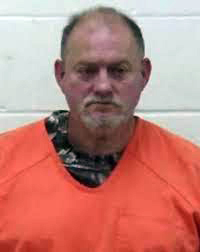Thai Baptists minister to U.S. tornado victims
BANGKOK (BP) -- The picture on Ginger Foss' Facebook wall spoke volumes -- crushed and splintered wood, mangled siding and battered belongings peeked out from odd spots beneath the giant pile. Foss, of Moore, Okla., survived the EF-5 tornado but her house did not.
Missionary to Tokyo’s homeless dies
SEOUL (BP) -- Josh Park, an IMB missionary in Japan known for his zeal in sharing the Gospel with the homeless and anyone he came in contact with, died Friday (June 28) in Seoul after a lingering battle with cancer. He was 61.
After the attack & devastation, Pakistani collegians impart hope
LAHORE, Pakistan (BP) -- The Pakistani college students stepped gingerly through the pile of bricks, barely recognizing the church building. Its once-white walls were ashen from hours of burning and heat still radiated from glowing embers. Sarah and Vijay Cheema* stood frozen, taking in the scene up and down the street, unsure what to do. All around them, people were hurting as they sat in front of their damaged homes, 180 in all in the mostly Christian-minority community. ![]() Sarah's attention turned to a crying 4-year-old girl who said she hadn't eaten in two days. Her family's food and money burned with their home. Sarah immediately opened her backpack and shared her own snacks. "My heart broke," Sarah said. "It's very painful to see so many hurting at once, especially the young ones who did not understand what had happened." An angry mob descended on Joseph Colony in Lahore, Pakistan, on March 9, wreaking havoc after accusations that a Christian made a derogatory comment about Muhammad, an illegal act under to Pakistan's blasphemy law. While Muslims are frequently accused of blasphemy, members of Pakistan's small Christian community are especially vulnerable. Sarah and Vijay Cheema, who are brother and sister, had watched news reports of angry crowds destroying sections of the small colony and, the next day, decided to take friends across town to offer help. "I remember that like it was yesterday," Vijay recounted almost two months later. "Our lives changed that day. We knew that we had to help but we were just poor students. We wondered how God could use us if we had no money." What the Forman Christian College students lacked in funds, however, they made up in energy and drive. They rallied a larger team of friends from the student body, around 18 in all, and put out collection boxes for clothes, money and food. ...
Sarah's attention turned to a crying 4-year-old girl who said she hadn't eaten in two days. Her family's food and money burned with their home. Sarah immediately opened her backpack and shared her own snacks. "My heart broke," Sarah said. "It's very painful to see so many hurting at once, especially the young ones who did not understand what had happened." An angry mob descended on Joseph Colony in Lahore, Pakistan, on March 9, wreaking havoc after accusations that a Christian made a derogatory comment about Muhammad, an illegal act under to Pakistan's blasphemy law. While Muslims are frequently accused of blasphemy, members of Pakistan's small Christian community are especially vulnerable. Sarah and Vijay Cheema, who are brother and sister, had watched news reports of angry crowds destroying sections of the small colony and, the next day, decided to take friends across town to offer help. "I remember that like it was yesterday," Vijay recounted almost two months later. "Our lives changed that day. We knew that we had to help but we were just poor students. We wondered how God could use us if we had no money." What the Forman Christian College students lacked in funds, however, they made up in energy and drive. They rallied a larger team of friends from the student body, around 18 in all, and put out collection boxes for clothes, money and food. ...
Baggies of school supplies buoy children in Asian migrant camps
SOUTHEAST ASIA (BP) -- Two 10-year-old boys sneak down the dark path and away from lingering "adult talk." They can't ![]() wait to rip into the Kits for Kids package some International Mission Board missionaries brought to their migrant camp in Southeast Asia. The only reason they didn't open it up after the Bible story was because it's so dark they can't see what's in the clear baggie they've each received.
wait to rip into the Kits for Kids package some International Mission Board missionaries brought to their migrant camp in Southeast Asia. The only reason they didn't open it up after the Bible story was because it's so dark they can't see what's in the clear baggie they've each received.
From metro D.C. to Asia, to where it’s ‘so different than us’
THAILAND (BP) -- The small groups whispered around the classroom –- students at a seminary in Thailand and their American visitors -- sharing about their families and other facets of their lives.
Cancer didn’t stop his treks to China
SEOUL, South Korea (BP) — Grueling cancer treatment didn’t stop Byong Do Jang from living out his call to minister in East Asia. For 18 months, the IMB missionary juggled chemotherapy and trips into China to train others in evangelism. It all came to an end on July 30 when Jang died from stomach cancer […]
In Bangkok detention, refugee learns of Christ
BANGKOK (BP) -- The tall, lanky man can hardly contain his excitement. He anxiously paces the narrow waiting area, stopping to tell anyone sitting in the uncomfortable, plastic government chairs his big news.
Bangkok church reaches int’l refugees in its own backyard
BANGKOK (BP) -- The white gunnysack keeps slipping out of my hands. It didn't feel this heavy when we started walking 20 minutes ago, but now my arms feel like wet noodles in this Bangkok heat and humidity.
Calvary Baptist Church volunteer Kim Amihan grabs the bag from me and lets out a grunt at the weight. I'm convinced we're carrying 70 pounds of rice but it's really just 10, plus spices from South Asia, cookies, canned meat and an odd assortment of extras from the church's "world hunger food closet." We are taking it to a refugee family but are lost on the backstreets of Bangkok. We definitely look out of place in this Thai neighborhood -- a Filipino, a Brit and two Americans looking for South Asians. Finally, International Mission Board missionary Carrie Chappell spies a smiling William Younus waving to us. He quickly invites us out of the scorching sun and into the oven he calls home. Two teenage boys pour us glasses of cool water while their preteen brother confiscates extra stools from the neighbors. The four of us sit shoulder-to-shoulder in the open floor space of this tiny concrete room. The boys and their parents squeeze onto the only other available spot, on top of the lone bed crammed into one corner. This concrete block room is no bigger than a child's bedroom in most American homes, yet a family of five lives here. It isn't quite what you expect when you think of refugee life. The iconic image of refugees is row upon row of white tents in a sprawling emergency camp, not a dingy apartment in a mega-city. But the reality is that only one-third of the world's 15.4 million refugees live in camps. Like most of the world's population, refugees have steadily moved into cities and towns. Urban refugees are among the fastest-growing population segment globally. Thousands of people like the Younuses live in Bangkok, where the United Nation's High Commissioner for Refugees has an office. UNHCR estimates 90 people seek asylum each month in Thailand, fleeing some form of persecution or war. Thailand is one of the few countries that does not honor the international human rights laws protecting those who flee persecution and seek asylum outside of traditional camps. Instead, urban refugees are considered illegal migrants.Pastor’s encounter with terrorist: beatings, jail, yet perseverance
ORISSA STATE, India (BP) -- A group of criminals sits jam-packed in the filthy Indian holding cell. The smell of urine permeates the dank air. Two bedraggled men in the corner stand out from the other detainees -- not because of their threadbare clothes or clean-cut features but because of their actions. Pabitra Kata hums a hymn while Niladri Kanhar prays. Their alleged crime: "proselytizing." Local authorities accuse the two of coercing a Hindu man into becoming a Christian. Neither denies the fact that they were sharing a Bible story, but the word "coercion" makes them shake their heads in disbelief. Claiming Christianity in India's Orissa State means persecution and brutal beatings. Both men have the scars to prove it. Kata sports a hairless, jagged line above his right ear where his head was caved in from a beating; Kanhar has an eight-inch scar along his right side. Kata glances at his friend deep in prayer and remembers his own fervent prayer that started their journey. SIX YEARS AGO "Lord, give me just one family to build Your church on," Kata begged God in 2005. "We need a family that can stand strong like a rock -- like Your disciple Peter." The Holy Spirit answered the pastor by leading him up a mountain path and through the forest. When he stopped at the edge of a well-known terrorist village, Kata couldn't believe it. This para-military group often killed or terrorized Christians in a nationalist effort to keep India strictly Hindu. To make matters worse, one of the most feared leaders who lived in this village -- Kanhar -- was responsible for destroying churches and the beating, rape and even murder of Christians. "Surely, God isn't this crazy!" Kata thought. He had made a wrong turn in the forest, the pastor thought as he walked back home, pleading the entire way for just one family. Inside the village, Kanhar sat in his house, a broken and angry man. All five of his children were sick. Despite his powerful position as the local terrorist leader, there was nothing he could do to make things better for his family. He already had tried everything -- medical doctors, offerings at the Hindu temple and witchcraft. At one point, Kanhar sensed that one of the gods to which he had made sacrifices told him someone in his house would die. "I did everything you asked. We have become beggars and still we are suffering," Kanhar screamed. "If you are not able to save us, go away and send us someone who can!"
Tsunami survivor struggles to find peace
KAMAISHI, Japan (BP) -- Shukuko Sasaki starts her day the same as she has every day since March 12, 2011 -- remembering those who died in the tsunami.












